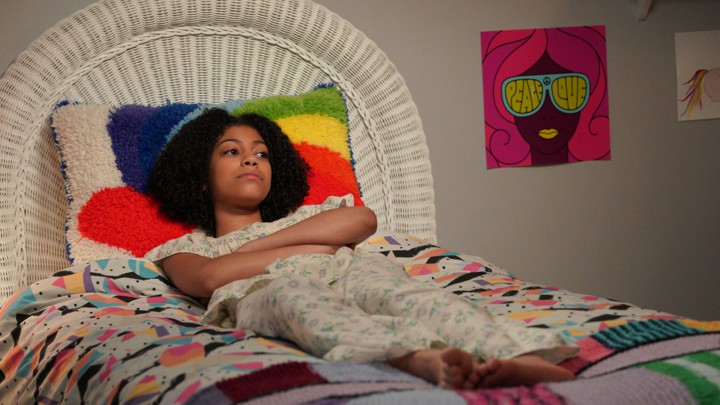How ‘mixed-ish’ Failed To Tackle Biracial Identity and Chose To Rely On TropesPosted in Articles, Communications/Media Studies, Media Archive, United States on 2019-10-27 00:54Z by Steven |
How ‘mixed-ish’ Failed To Tackle Biracial Identity and Chose To Rely On Tropes
Wear Your Voice
2019-10-02
Set in the 1980s, ABC’s mixed-ish, the newest black-ish spin-off, tells the story of Dr. Rainbow “Bow” Johnson’s (Arica Himmel) experience growing up biracial. The Johnson family — white father Paul (Mark-Paul Gosselaar), Black mother Alicia (Tika Sumpter), Bow and her siblings Johan (Ethan William Childress) and Santamonica (Mykal-Michelle Harris) — are also former members of a “hippy” commune, where presumably, neither race nor racism existed.
The show’s premise is that being forced into the “real world,” where race and racism do exist, is a major source of culture shock that the entire family must now navigate.
As a Black multiracial woman who doesn’t have a white parent, I’m tired of portrayals of mixedness that mock Blackness, portray multiraciality and interracial marriages as the more “righteous” path, and ignore experiences that don’t fit into POC/white binaries.
Unfortunately, mixed-ish embodies all this and more…
Read the entire article here.





